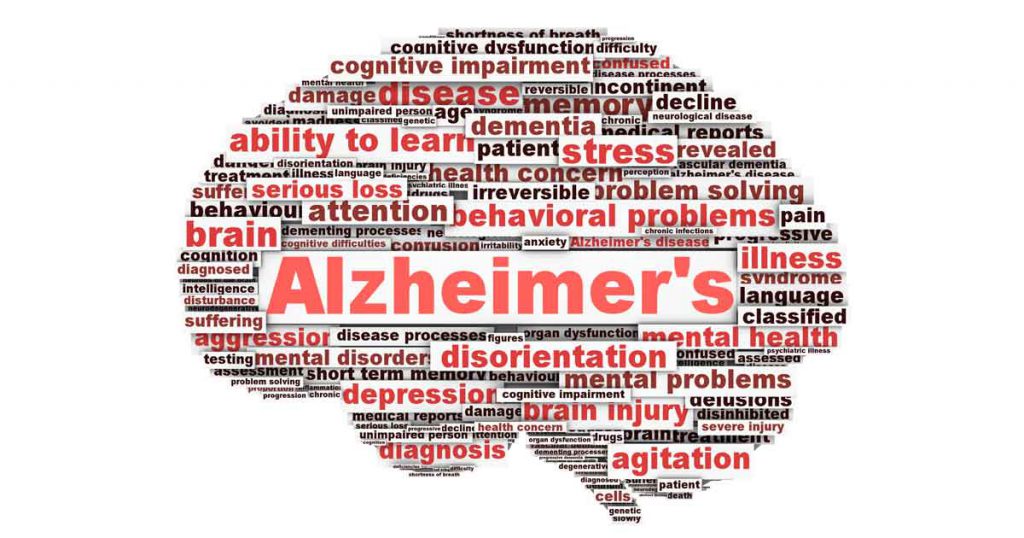
Can Alzheimers be reversed? There are plenty of clinical results in the field of functional medicine that show promising results for reversing Alzheimers.
Functional Medicine
What is functional medicine? It’s a field that specializes in finding root causes for chronic diseases and treating those root causes. Instead of the traditional “diagnose and medicate” cycle which is found in traditional medicine, the functional medicine doctor looks for root causes of inflammation, the primary cause of Alzheimers deterioration. When these root causes are found and treated, there can often be miraculous recovery.
Early Treatment
Of course, just like anything else, the earlier the symptoms are recognized the more chance that the condition can be reversed. If symptoms are allowed to continue for an extended period and it is very late in the progression of the illness, then there is less chance for remission but anytime you remove the sources of inflammation to stop deterioration that is really happening throughout the body and only presents itself in the brain first.
Inflammation
Inflammation can be caused by a variety of sources – toxins built up in the body from exposure to harmful substances from the air, our foods, our water, or eating foods that cause a mild allergic reaction called “sensitivity” where symptoms might be barely noticeable. Inflammation can also be created from a lack of vitamins and nutrients in the diet. I believe that our mental model in most cases is to look for what we can take – a medication or herb, to make our body function better. In some cases it’s what we can eliminate that will make a big difference.
Foods That Prevent Alzheimers
Here is a food list that will help detoxify and nourish the body specifically for those with early Alzheimers symptoms.
1. Leafy greens. Some ideas: kale, spinach, collard and mustard greens. These foods are high in folate and B9, which improve cognition and reduce depression.
2. Cruciferous vegetables. Broccoli, cauliflower, bok choy, brussels sprouts and kale contain folate and have cartenoids that lower homo-cysteine (an amino acid linked with cognitive impairment).
3. Beans and legumes. These foods contain more folate, iron, magensium and potassium that can help with general body function and neuron firing. They also contain choline, a B vitamin that boosts acetylcholine (a neuro transmitter critical for brain function).
4. Whole grains. Good bets include quinoa, kammut and gluten-free oats (not bread and cereal)
5. Berries and cherries. These fruits contain anthocyanin that protects the brain from further damage caused by free radicals. They also have anti-inflammatory properties and contain antioxidants and lots of vitamin C and E.
6. Pumpkin, squash, asparagus, tomatoes, carrots and beets. These vegetables, if not overcooked, contain vitamin A, folate and iron that help with cognition.
7. Omega 3s. People whose diets contain daily omega 3s have been shown to have 26% less risk of having brain lesions that cause dementia compared with those who do not. These fatty acids help the brain to stay in top shape. You can get your omega fatty acids from fish, flax seeds, olive oil (not safflower) or by taking a good quality omega 3 supplement.
8. Almonds, cashews, walnuts, hazelnuts, peanuts and pecans. All of these nuts contain omega-3s and omega-6s, vitamin E, folate, vitamin B6 and magnesium.
9. Sunflower seeds and pumpkin seeds. These seeds contain zinc, choline and vitamin E.
10. Cinnamon, sage, tumeric and cumin. Theses spices can all help to break up brain plaque and reduce inflammation of the brain which can cause memory issues. In addition to eating the foods listed above, you’ll want to decrease the risk of illnesses that can make your brain age such as obesity, heart disease, diabetes and hypertension.
If you can’t afford to go see a functional medicine doctor, then at least you can take steps to make sure you pursue a better diet.
Also read these articles.
Also search Amazon for books and resources on alzheimers

